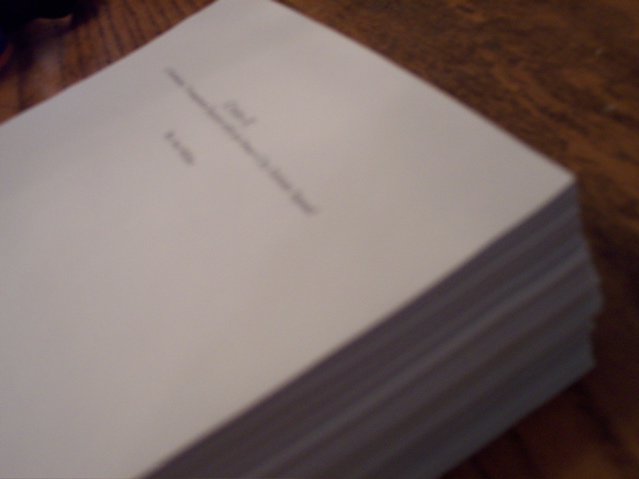Great stuff. Said is quite a bit more reader-friendly than a lot of scholars.
Orientalism was published in 1978, but it totally applies to what's happening in the world right now. The book examines the history of Orientalism as an academic study, which he argues was less about understanding than it was about empowering Western civilization (namely England and France, and then later the United States) to dominate and exploit the rest of the world.
Check this out,:
It is natural for men in power to survey from time to time the world with which they must deal... Our contemporary Henry Kissinger does it... , rarely with more express frankness than in his essay "Domestic Structure and Foreign Policy." ...
Kissinger's method in the essay proceeds according to what linguists call binary opposition: that is, he shows that there are two styles in foreign policy, two periods, and so forth. When at the end of the historical part of his argument he is brought face to face with the contemporary world, he divides it according to two halves, the developed and the undeveloped countries. The first half, which is the West, "is deeply committed to the notion that the real world is external to the observer, that knowledge consists of recording and classifying data -- the more accurately the better." Kissinger''s proof for this is the Newtonian revolution, which has not taken place in the developing world: "Cultures which escaped the early impact of Newtonian thinking have retained the essentiial pre-Newtonian view that the world is almost completely internal to the observer." Consequently, he adds, "empirical reality has a much different significance for many of the new coountries than for the West because in a certain sense they never went through the process of discovering it."
...The point [Kissinger] makes is sufficiently unarguable to require no special validation. We had our Newtonian revolution, they didn't. As thinkers, we are better off than they are... Thus the duty of men in the post-Newtonian (real) world is to "construct an international order before a crisis imposes it as necessary": in other words, we must stiill find a way by which the developing world can be contaoined...
Both the traditonal orientalist... and Kissinger conceive of the difference between cultures, first, as creating a battlefront that separates them, and second, as inviting the West to control, contain, and otherwise govern (through superior knowledge and accommodating power) the Other. Wiith what effect and at what considerable expense such militant divisions have been maintained, on one at present needs to be reminded.
But just in case we need be reminded, from the book's preface to the 25th annniversary edition:
[T]here is a differennce between knowledge of other peoples and other times that is the result of understanding, compassion, careful study and analysis for their own sakes, and on the other hand knowledge--if that is what it is--that is part of an overall campaign for self-affirmatiion, belligerency, and outright war... It is surely one of the intellectual catastrophes of history that an imperialist war confected by a small group of unelected US officials (they've been called chicken hawks, since none of them ever served in the millitary) was waged against a devastated Third World dictatorship on thoroughly ideological grounds haviing to do with world dominance, security control, and reasoned for by Orienatlists who betrayed their calling as scholars. The major influences on George W. Bush's Pentagon and National Security Council were men such as Bernard Lewis and Fouad Aami, experts on the Arab and Isllamic world who helped the American hawks think aboout such preposterous phenomena as the Arab mind and centuries-old Islamic decline that only American power could reverse. Today bookstores in the United States are filled with shabby screeds bearing screaming headlines about Islam and terror, Islam exposed, the Arab threat, and the Muslim menace, all of them written by political polemists pretending to knowledge imparted to them and others by experts who have supposedly penetrated the heart of these strange Oriental peoples over there who have been such a terrible thorn in "our" flesh. Accompanying such warmongering expertise have been the omnipresent CNNs and Fox News Channels of this world, plus myriad numbers of evangelical and right-wing radio hosts, plus innumerable tabloids and even middlebrow jourals, all of them recycling the same unverifiable fictions and vast generalization so as to stir up "America" against the foreign devil.
Even with all its terrible failings and its appalling dictator (who was partly created by US policy two decades ago), were Iraq to have been the world's largest exporter of bananas or oranges, surely there would have been no war, no hysteria over mysteriously vanished weapons of mass destruction, no transporting of an ennormmous army, navy, and air force 7000 miles away to destroy a country scarcely known even to the educated Ammeriican, all in the name of "freredom." Without a well-organized sense that these people over there were not like "us" and didn't appreciate "our" values... there would have been no war.




